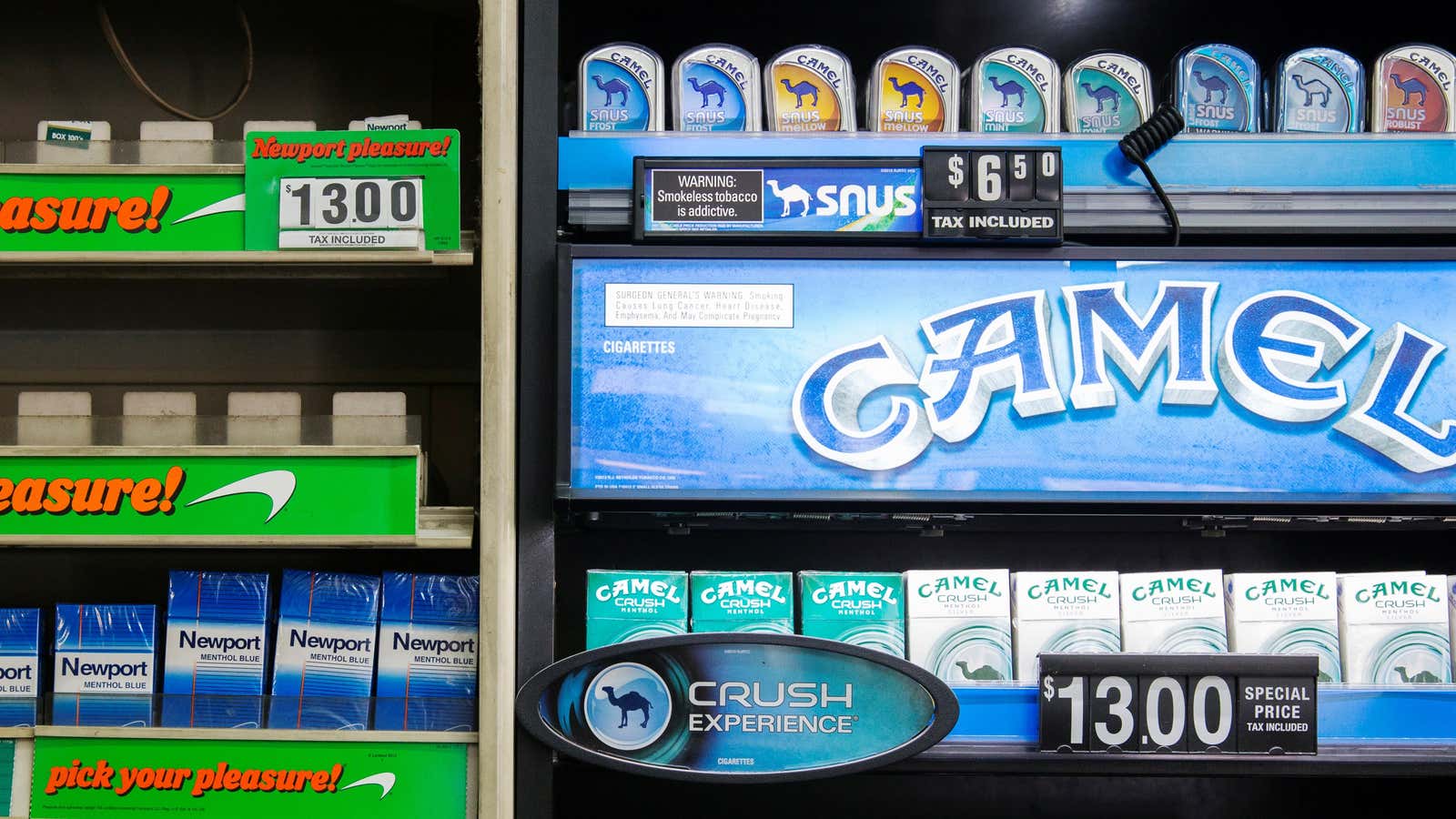Doctors have warned that people who smoke stand a greater chance of dying if they contract Covid-19. Both the US Centers for Disease Control and Prevention and the World Health Organization have stated that smokers, along with those with diabetes, heart disease, or chronic lung disease, are at greater risk of developing severe complications due to the virus.
But smokers don’t seem to be kicking the habit during the pandemic, despite those increased health risks. In fact, sales of traditional cigarettes have actually picked up. Cigarette volumes grew by 1.1% in the week through March 22, according to investment bank Piper Sandler.
Increased cigarette sales may not be due to increased smoking, exactly: Some of the uptick is likely due to stockpiling. Alcohol sales have seen a similar spike during the pandemic. On a March 18 earnings call, CEO Brian Hannasch of Alimentation Couche-Tard, the parent company of Circle K convenience stores, noted that customers were stocking up on alcohol and cigarettes.
Meanwhile, activity on tobacco store listings on Yelp, including page views and reviews, has increased by 120% since March 1. Tobacco General, an online tobacco store, has warned customers of shipping delays due to “unprecedented demand” because of Covid-19. It’s a similar situation at Smoker’s Outlet Online. And while states like New York have shut down tobacco stores and are even weighing an outright ban, other states have deemed them an essential business. Cigarettes are also readily available at drug stores and grocery stores, both essential businesses.
The Covid-19 pandemic has been an interesting turn of events for Big Tobacco, which has taken a hit as smokers trade traditional cigarettes for vaping. Now, with many smokers stuck in quarantine and various state regulations banning certain vapes, traditional cigarettes are experiencing a revival. Shares of British American Tobacco (which owns Lucky Strike, Pall Mall, and over 200 cigarette brands) and Imperial Tobacco have risen in the wake of the pandemic.
Downloads of popular smoking cessation apps have not seen a significant surge in the US and UK during the month of March, according to data from app analytics firm Sensor Tower. In a few cases, they’ve even declined.
There’s one exception: Kwit experienced a significant surge in global downloads for March, but it’s unlikely to be due to Covid-19 since it was tied to a single week. In the US, downloads for QuitNow, Smoke Free, and Quit Smoking apps fell by 6.9%, 10%, and 5.3%, respectively, in the month of March. In the UK, downloads of the Smoke Free app increased by 5.2%, but downloads of Quit Now fell by 7.1%.
Outside the US, the situation is similar. With the exception of Kwit, global downloads of smoking cessation apps have stayed the same. Quit Now experienced a 1.9% increase, while Quit Smoking saw a nearly 3% decline in downloads.
Despite the apparent risks, it appears that times of high anxiety and stress aren’t the ideal moment to quit smoking. “Smokers are well aware of the risks associated with tobacco products, yet continue smoking anyway,” Jeffries analysts wrote in a March 26 research note. “If smokers are willing to take their chances with cancer and the various other serious health risks with cigarettes, we think they are likely to be little fazed by Covid.”
